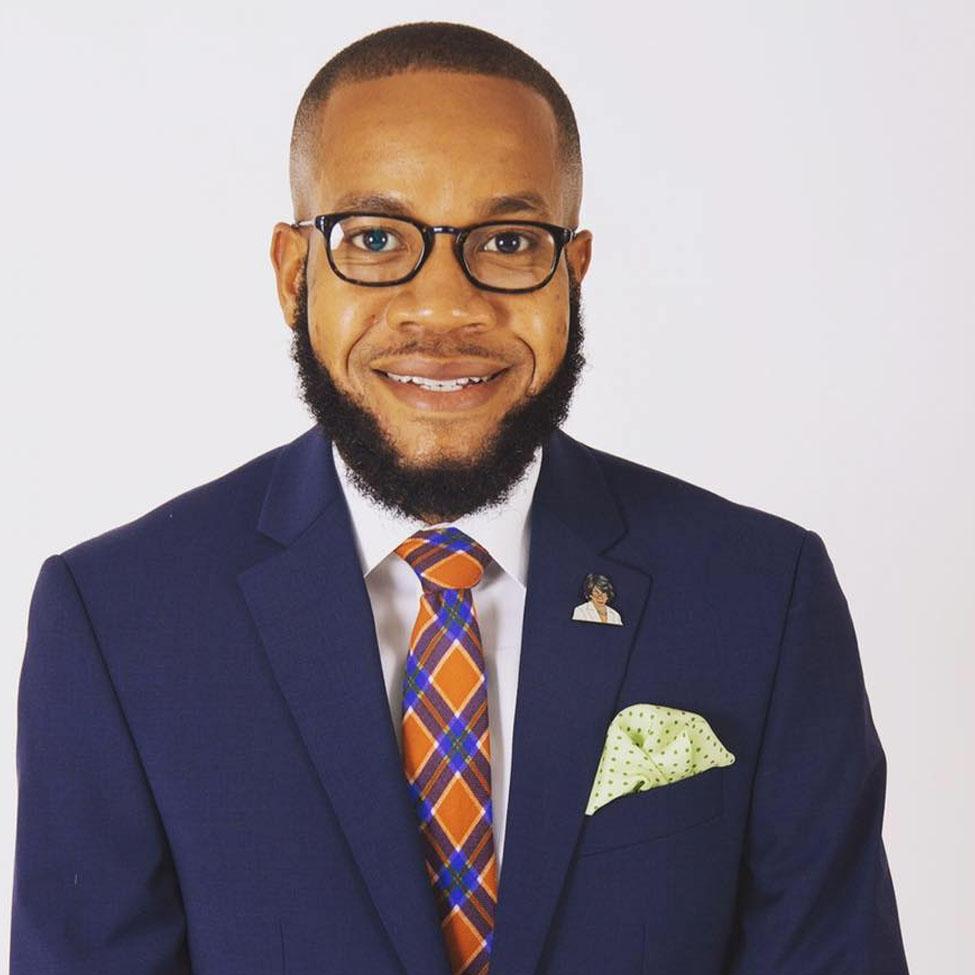
Will Donald Trump Deport Ukrainian Refugees? What We Know
Haub Law Professor and Director of the Immigration Justice Clinic Amelia Wilson speaks with Newsweek about the deportation risks facing Ukrainian refugees, noting that U.S. history suggests individuals from war-torn nations are not necessarily exempt from removal.
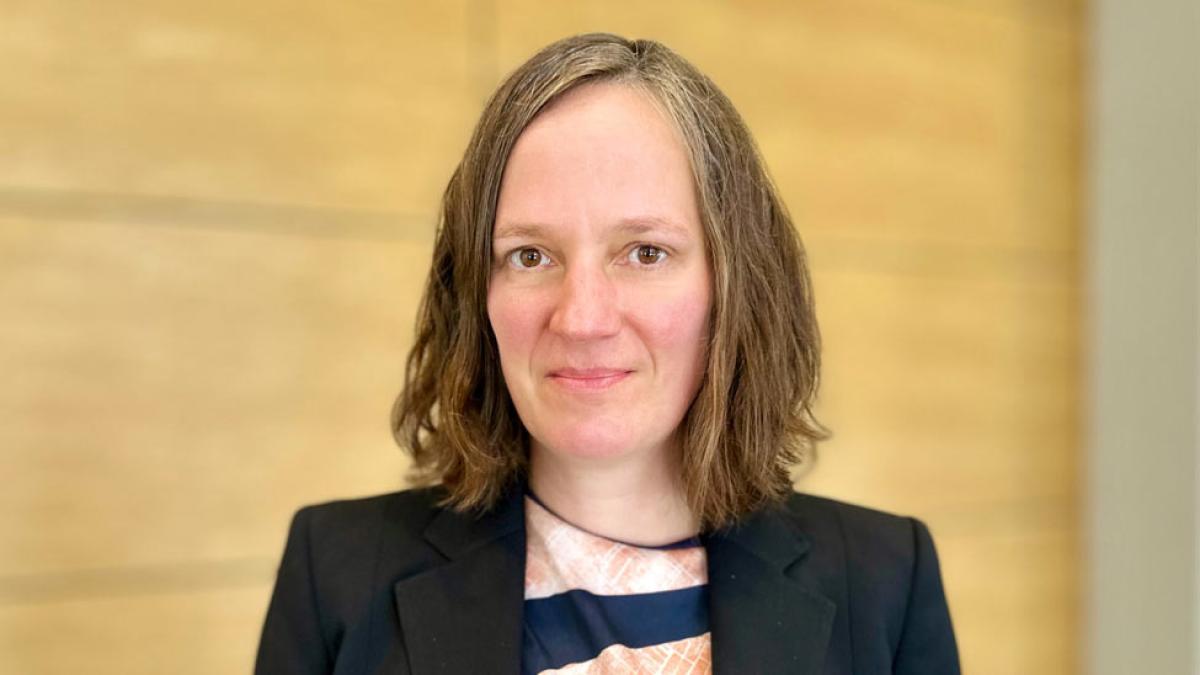
New Realpolitik and Korea
Dyson Professor Seong Jae Min writes a piece in The Korea Times analyzing Korea’s shifting geopolitical landscape.
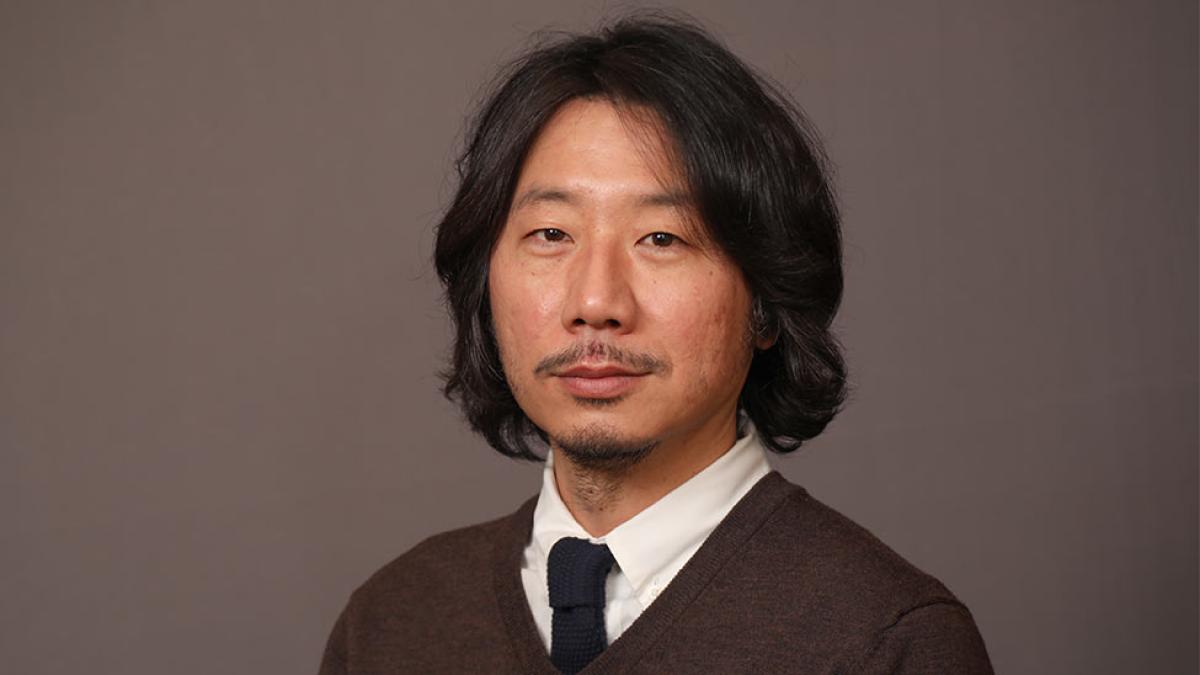
Taco Project Donates Funds To Support Pace University's Women's Justice Center
Local restaurant chain Taco Project donates proceeds to support the Pace Women’s Justice Center, News 12 Westchester reports. All five locations donated $1 for every taco sold in honor of International Women's Day.
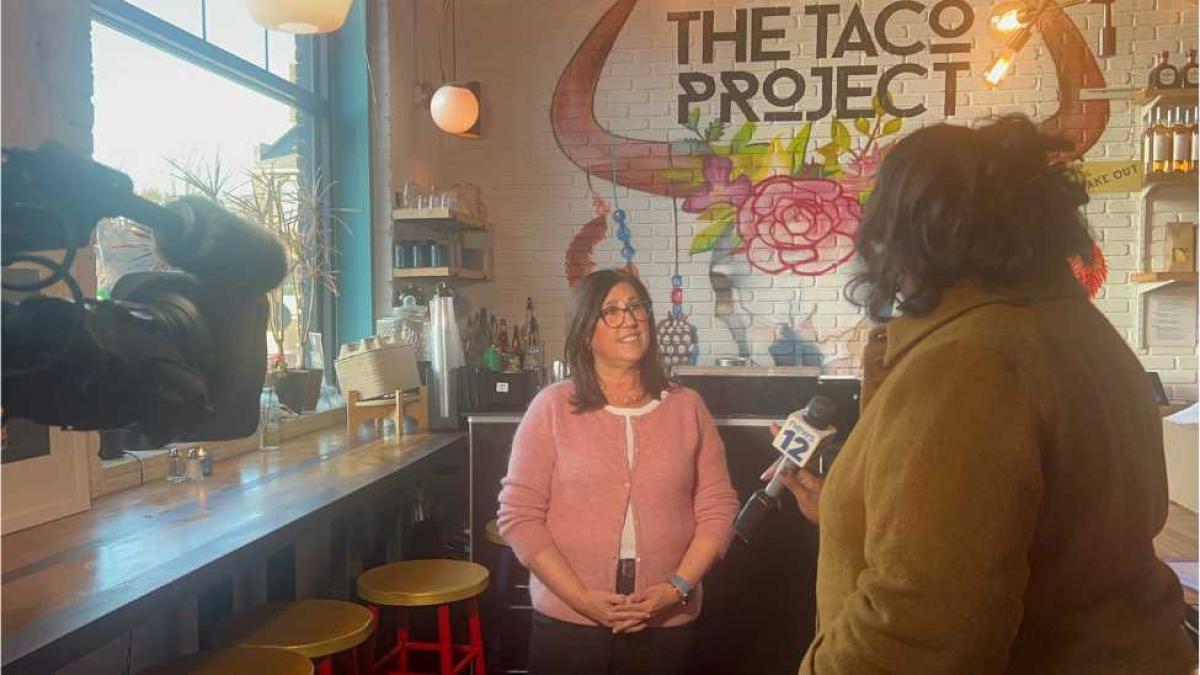
Dyson Faculty Are Recognized by Project Pericles with Civic Engagement Mini-Grants
Associate Professor of Communication and Media Studies Melvin Williams, PhD, and Clinical Assistant Professor of Political Science Laura Tamman, PhD, have been awarded Civic Engagement Mini-Grants through Pace’s Center for Community Action and Research’s longtime partnership with Project Pericles.
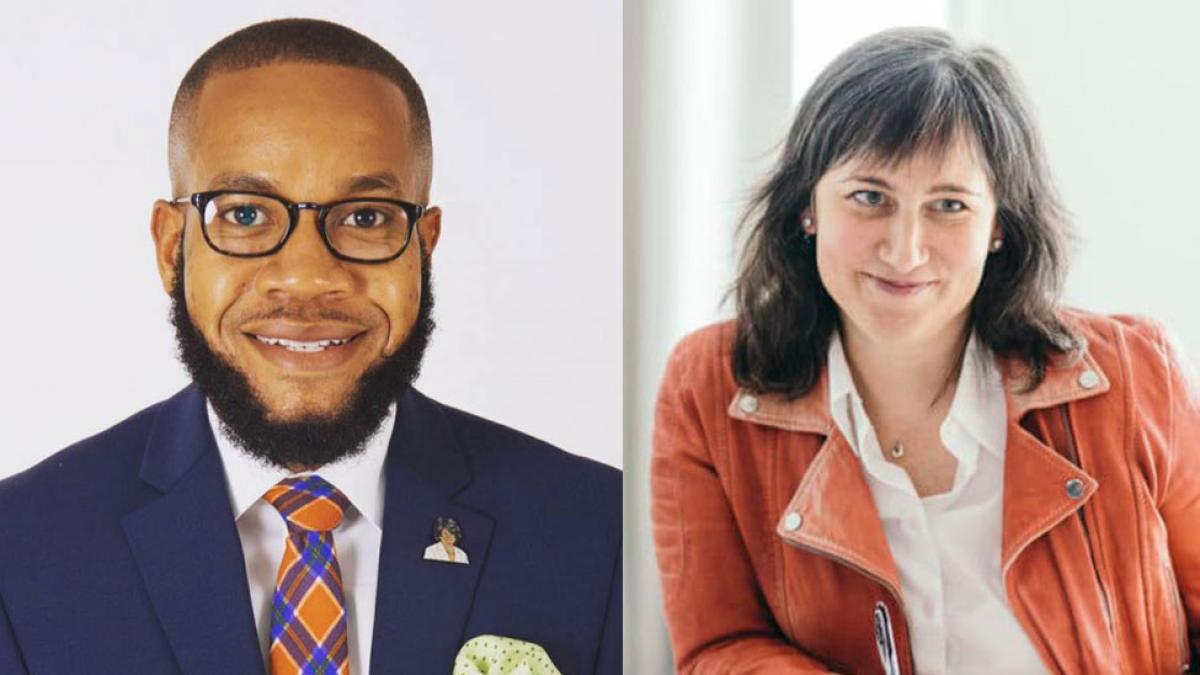

Associate Professor of Communication and Media Studies Melvin Williams, PhD, and Clinical Assistant Professor of Political Science Laura Tamman, PhD, have been awarded Civic Engagement Mini-Grants through Pace’s Center for Community Action and Research’s longtime partnership with Project Pericles. Project Pericles is a higher education nonprofit dedicated to advancing civic participation and social responsibility across college campuses through faculty leadership programs, community-engaged learning, and co-curricular initiatives.
Both faculty will be joining a national cohort of faculty working to strengthen democracy by designing innovative projects, assignments, and activities that empower students to engage with public issues in inclusive and collaborative ways.
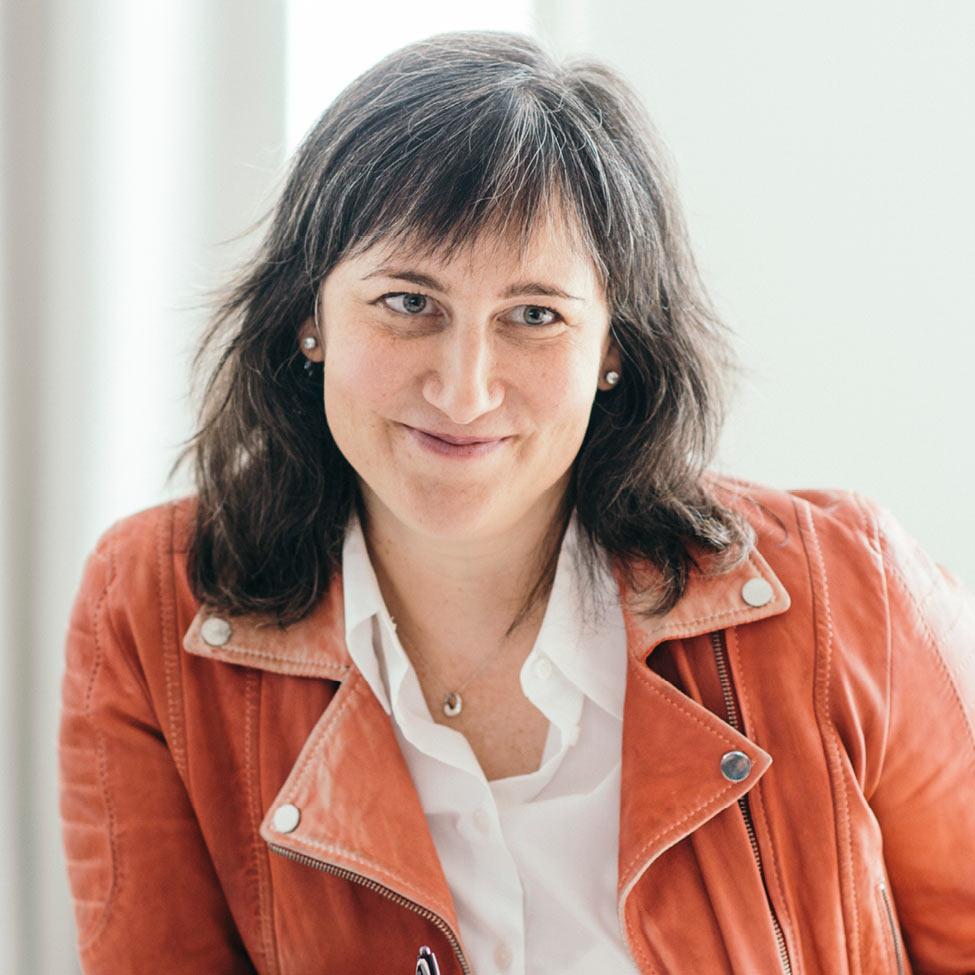
Tamman will be integrating a Ranked Choice Voter Simulation into her course, Introduction to American Politics and Government, and Williams will be integrating voter education into a conversation about celebrity political endorsements in his course, Communication and Popular Culture. In doing so, these faculty will be contributing to Project Pericles Civic Engagement Resources used by faculty and staff nationwide.
Funding for this program is provided to Project Pericles thanks to the Mellon Foundation and the Eugene M. Lang Foundation.
Additional faculty are expected to receive mini-grants for fall 2025, so stay tuned for an update.
The Importance of Professional Development: Jason Slyer, DNP, RN, FNP-BC, CNL, FNAP, FNYAM
Jason Slyer, DNP, RN, FNP-BC, CNL, FNAP, FNYAM is a family nurse practitioner (FNP) with over 20 years of experience in cardiac and chronic disease management. As a doctor of nursing practice (DNP)-prepared nurse practitioner, he is a leader and expert in evidence-based practice and translational research with scholarly interests in the area of shared decision-making in the promotion of person-centered care practices.
We connected with him to get his perspective on the LSN’s graduate programs as both a professor and former student.


Jason Slyer, DNP, RN, FNP-BC, CNL, FNAP, FNYAM is a family nurse practitioner (FNP) with over 20 years of experience in cardiac and chronic disease management. As a doctor of nursing practice (DNP)-prepared nurse practitioner, he is a leader and expert in evidence-based practice and translational research with scholarly interests in the area of shared decision-making in the promotion of person-centered care practices.
Dr. Slyer has made a tremendous impact at the College of Health Professions, as both the director for graduate practice programs, and an associate professor for the Lienhard School of Nursing (LSN). Dr. Slyer additionally serves on multiple committees for the University and has a unique point of view as a two-time Pace University alum. We connected with him to get his perspective on the LSN’s graduate programs as both a professor and former student.
Why did you become a nurse?
I came to nursing as a second-degree career, after earning my bachelor’s in biology. During my undergraduate years, I worked in various support roles within the hospital setting, which gave me firsthand exposure to the work nurses do. I have always been drawn to science and anatomy, and nursing allows me to blend that passion with critical thinking and meaningful human connection. It is a career where I can make a real difference in people’s lives. Nursing provides me with the opportunity to support, educate, and advocate for patients in ways that are both deeply fulfilling and intellectually challenging.
How has the nursing career field changed since you first started your career?
Nursing and health care has evolved tremendously over the past 25 years. The scope of practice for nurse practitioners has expanded, allowing for greater autonomy and independent practice. There is now a stronger emphasis on evidence-based practice, technology, and interprofessional collaboration. We’ve also seen major shifts in healthcare delivery, including the rise of telehealth post pandemic, the emergence of AI-driven diagnostics, and an increased focus on person-centered care models. Additionally, the development of the DNP degree has elevated the role of nurses as leaders in evidence-based practice, healthcare policy, and innovation, helping to shape systems that improve patient outcomes.
You’ve worked for CHP since 2011—what makes CHP and LSN special from your perspective?
As both a two-time alum and long-time faculty member, I have experienced firsthand from both the student and faculty perspective on what makes CHP and LSN truly special. What sets us apart is our deep commitment to student success, innovation, and excellence in clinical education. Our mission here goes beyond teaching skills; we aim to shape competent, confident, and compassionate NPs who are prepared to lead in the field. The faculty here are not just educators; they are dedicated mentors who genuinely invest in students’ growth and professional development. Our curriculum continues to evolve to meet the ever-changing demands of modern healthcare, ensuring that our graduates are not only highly skilled but also forward-thinking leaders in their practice.
Pace’s strong sense of community and purpose initially drove me here for my graduate education, but it is the faculty’s unwavering commitment to that purpose that keeps me here. It is also why so many of our alumni return for additional degrees—because they have experienced the transformative impact of a Pace education.
—Jason Slyer, DNP
Why did you choose CHP and LSN for your FNP degree? And then return for your DNP?
I chose Pace’s Lienhard School of Nursing for my FNP because of its strong reputation for clinical training and emphasis on preparing NPs for real-world practice. The dedicated and supportive faculty, along with small class sizes, allowed for individualized feedback to help me develop the skills and confidence needed for clinical practice.
My goal was always to pursue my DNP, to obtain a terminal practice degree in the field and enhance my ability to lead, educate, and drive meaningful change in health care. Returning to Pace for my DNP was a natural decision given the immensely positive experience I had in the master’s FNP program. The supportive environment frosted growth in all its students, making it an obvious choice to continue my education. I even waited two years for Pace to launch its DNP program rather than apply elsewhere because it felt right to come full circle and further my education in the same place that shaped my foundation as an NP.
Why do you think it’s important for nurses to continue their higher education?
Healthcare is constantly evolving, and lifelong learning is essential to staying ahead of rapidly-developing advances in care and emerging challenges. While a master’s degree prepares advanced practice nurses with the clinical decision-making knowledge and skills to impact patient outcomes, advanced education at the DNP level equips nurses with additional skills needed to lead teams, implement evidence-based practices, influence policy, and improve patient care at a systems level. Engaging in lifelong learning and seeking higher education is not just about career advancement—it’s about being the best possible advocate for patients, communities, and the profession as a whole.
How has getting your FNP and DNP degrees impacted your life?
Earning my FNP degree gave me the clinical skills and autonomy to provide comprehensive care and make a direct and meaningful impact on patients’ lives. Building on that foundation, my DNP degree broadened my perspective beyond individual patient care, challenging me to examine wider systemic or population-level improvements. The DNP program prepared me to be a leader in evidence-based practice, person-centered care, and primary health care, empowering me to drive meaningful changes that enhance healthcare outcomes.
Having the DNP has opened doors I never imagined—including academic leadership roles at Pace University, where I am leading curriculum revisions to enrich NP education, and influencing evidence-based practice on the global stage through my work with JBI. While these degrees have sharpened my clinical and leadership skills, they also positioned me to shape the future of nursing practice and education on both a national and international scale.
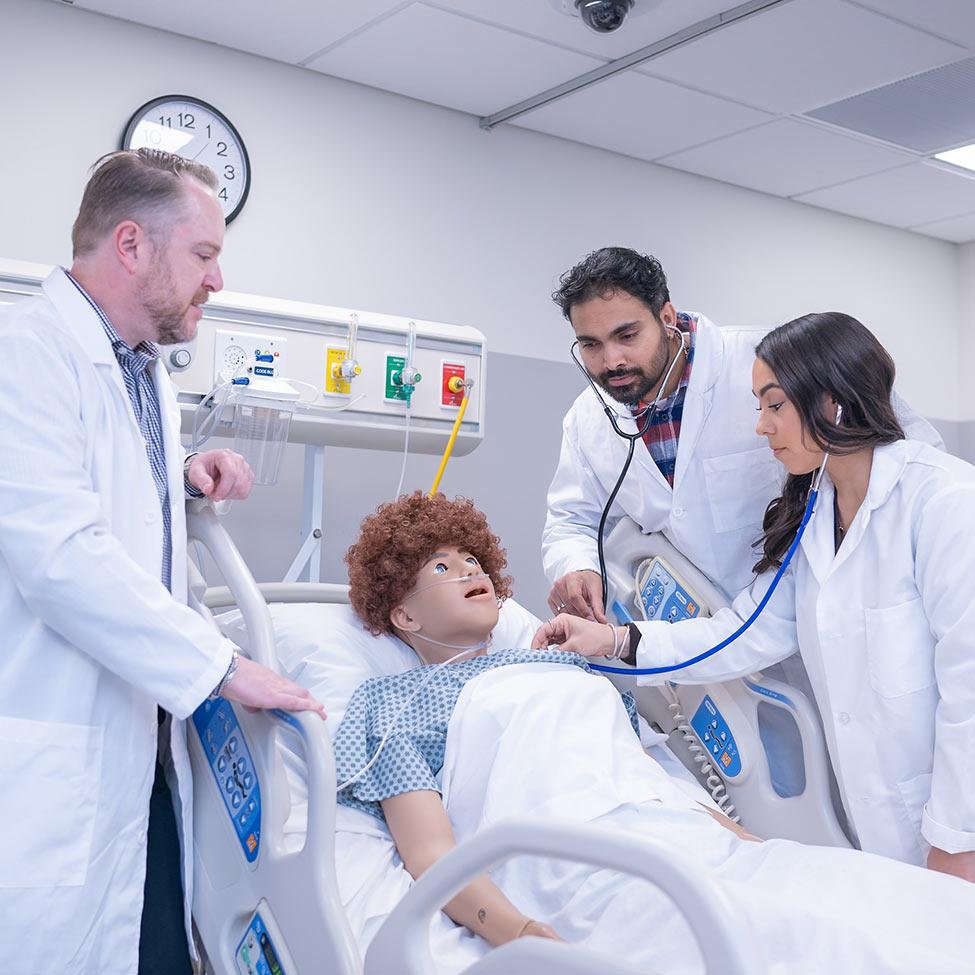
With your unique perspective as both an alum and faculty, how does CHP support their students?
CHP and LSN supports students by meeting them where they are. We recognize that our graduate students are working professionals balancing careers, families, and education, so we created a learning environment that is both flexible and supportive. Through our hybrid learning environment, strong clinical partnerships, faculty mentorship, or professional guidance we ensure that students have the resources they need to succeed.
Our faculty are not just educators; we are engaged and accessible mentors who create an environment where students can thrive, not just survive. And as practicing clinicians ourselves, we bring real-world experiences into the classroom, bridging the gap between theory and practice. Our hands-on, evidence-based approach ensures that our students graduate not only with the knowledge they need but also with the confidence and practical skills to apply it—feeling prepared and empowered to excel in practice.
Are there any publications that you’ve worked on that you are especially interested in?
Person-center care and evidence-based practice are foundational pillars of both Pace’s NP programs and my own clinical practice. Practicing using a person-centered approach requires engagement of a person in their care and fostering a supportive, collaborative relationship between the person and provider.
One of the publications I am particularly passionate about resulted from the collaborative work I have done with colleagues on shared decision-making, which led to the development of a model for using shared decision-making in practice. Our work, Shared Decision-Making for Nursing Practice: An Integrative Review, was published in The Open Nursing Journal in 2018. This research has been especially meaningful—not only in shaping my own practice but also in influencing countless others. The model continues to guide my approach to patient care, inform my ongoing research and scholarship and enhance my teaching by ensuring that the next generation of NPs are equipped to deliver truly person-centered, evidence-based care.
Any additional thoughts you’d like to share?
Pace has always been on the forefront of NP education, demonstrating a deep understanding of the evolving needs of advanced nursing practice. Recognizing the added value of the DNP early on, Pace launched the second DNP degree program in New York State in 2008 —positioning Pace as a leader in preparing nurse practitioners for the highest level of practice and clinical leadership.
Nursing education is at a pivotal moment, driven by the every-changing healthcare landscape, increasing demand for improved care and patient outcomes, and the shift in nursing education toward a competency-based approach. At Pace, we remain ahead of the curve by reimagining our graduate curriculum to ensure students develop the essential competencies need for today’s practice environments.
I am particularly passionate about this transition to competency-based education. To strengthen our efforts, I have brought Pace into a consortium of top-tier NP schools utilizing the PRIME-NP model as a framework for clinical competency development. We have already begun integrating PRIME-NP into our curriculum, providing students with the skills and confidence to transition from learners to independent practitioners. This model continues to shape our ongoing curricular enhancements, ensuring our graduates are not just knowledgeable but fully prepared to meet today’s complex challenges in clinical practice. I’m grateful to be part of the faculty at Pace and to play a part in shaping the future of the profession.
A perfect blend of science and policy: Ben McDonald '25 is ready to create a healthier environment
For Ben McDonald ’25, protecting the environment is more than a passion—it’s a mission. In Pace’s MS in Environmental Science and Policy program, he’s gaining hands-on experience with organizations like Riverkeeper and Waterfront Alliance.
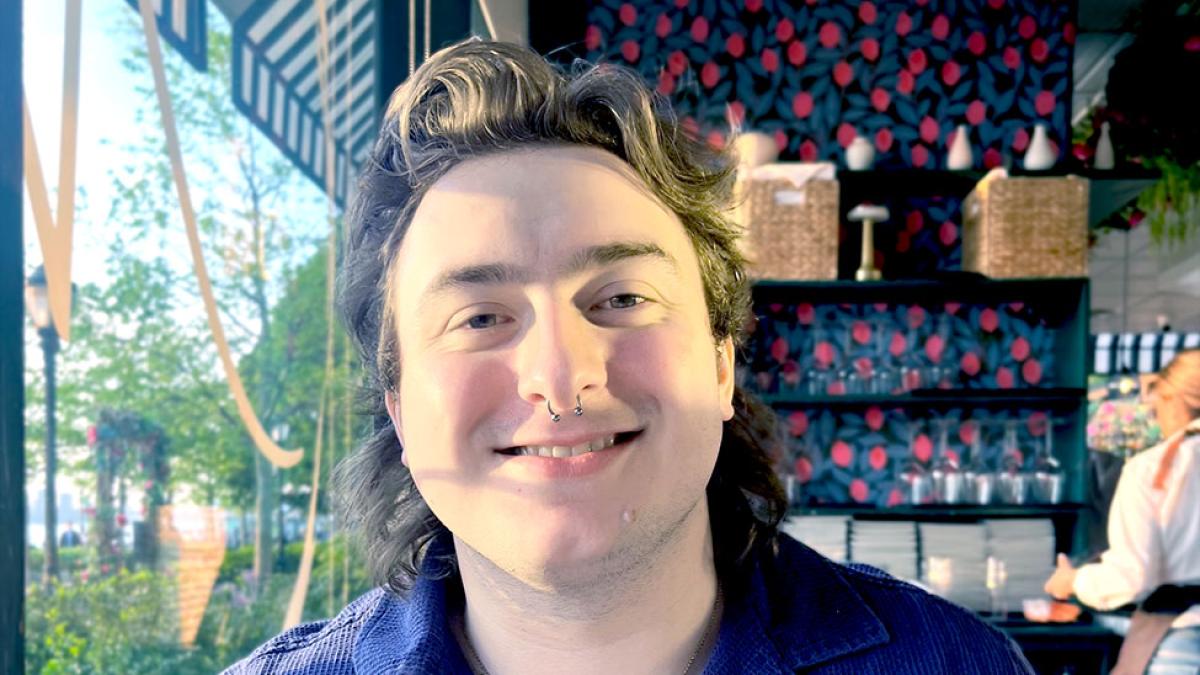
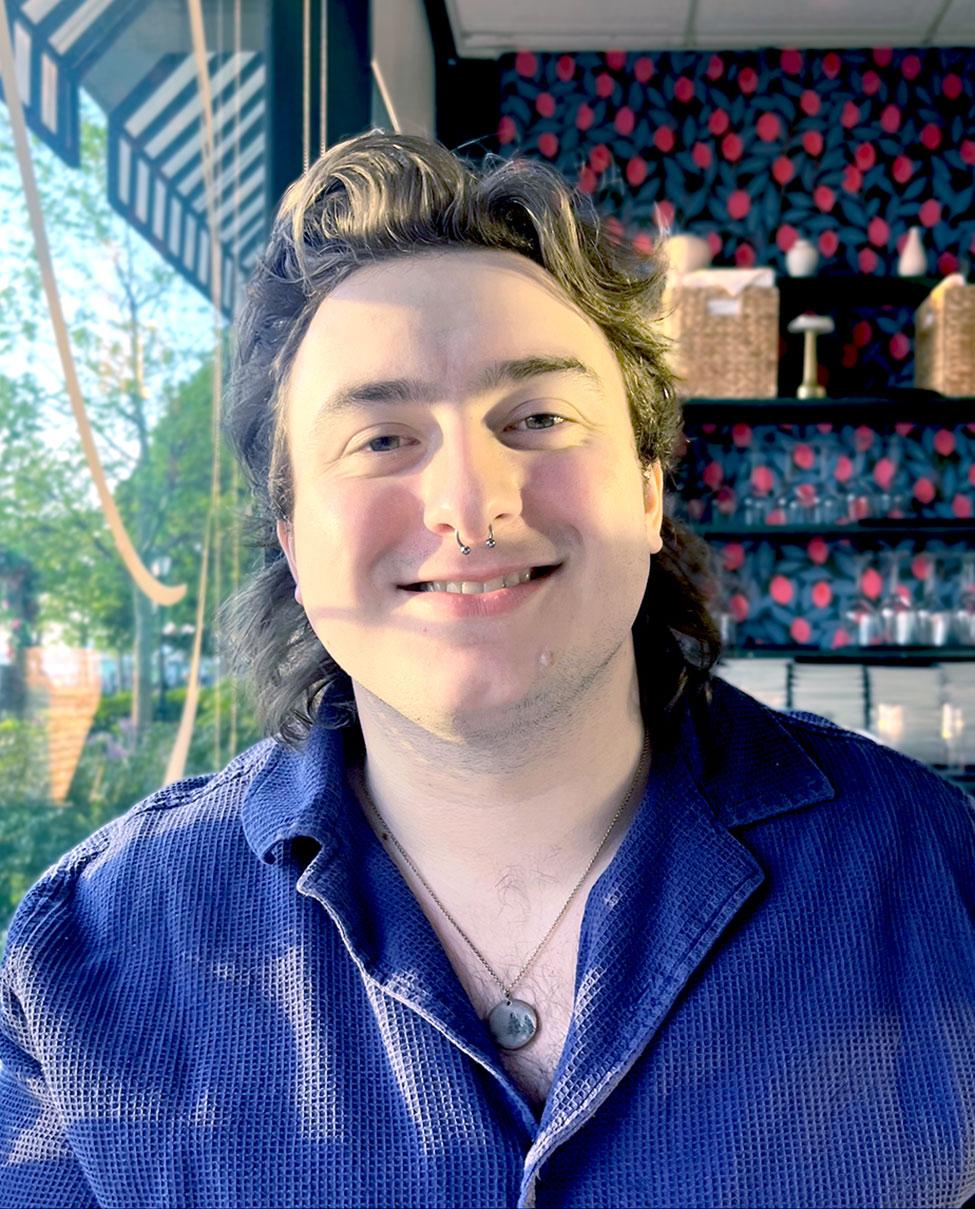
Ben McDonald
Class of 2025
MS in Environmental Science and Policy
Why did you choose to pursue environmental science and policy as a course of study?
I grew up in the Finger Lakes, which is known for its beautiful natural environment. Throughout my life, I saw firsthand how challenging it can be to maintain that environment and keep my neighbors safe and healthy. From the time I was an undergraduate at SUNY Binghamton, I knew I wanted to promote justice at all levels while creating a healthier environment.
Why did you choose to enroll in the MS in Environmental Science and Policy program at Pace?
New York State, including New York City, is a true center for environmental advocacy and science in the country and the world, with the work done here having large implications. I was drawn to the Master of Science in Environmental Science and Policy to be around this and utilize the incredible connections the program has fostered throughout its history. Additionally, I love that Pace’s program allowed for a very well-rounded experience with a focus in both science and policy which I think is very important for any professional in the field.
I love that Pace’s program allowed for a very well-rounded experience with a focus on both science and policy which I think is very important for any professional in the field.
What have your experiences been like with the Environmental Studies and Science department?
I have had an incredible experience as a student in the program in the Environmental Studies and Science department, learning from many great faculty, but I must single out Professor Michelle Land, JD, as truly instrumental to my journey. She has been both my professor numerous times and my advisor and consistently goes above and beyond to make sure that her students are doing well inside and outside of the classroom. If I ever have questions or concerns regarding the program, my career, or anything else, she will listen and do her best to help. Professor Land is one of the most caring, knowledgeable, and passionate professors I have had throughout my academic career.
What research have you been engaged in as a student?
I am currently working on my capstone project with Riverkeeper, which involves creating a dataset of drinking water quality covering the Hudson Valley. Given the implications of the data, it combines science, policy, and advocacy in a way that is very exciting to me. I’m very eager to fully process the data and learn everything I can about our drinking water.
What internships have you had as a student?
I had the opportunity to work as a climate policy intern with Waterfront Alliance, which involved conducting policy research, collaborating with other organizations to further our coalition goals, and speaking to both experts and elected officials to advance our efforts. I also had the opportunity to work at Riverkeeper for my required externship as mentioned earlier.
What are your career goals? What would you like to do upon graduation?
I began this program unsure of what exactly I wanted to do as a career. Two areas of interest to me are policy advocacy and habitat restoration, and through the experiences I have had in classes, internships, and externships, I have both honed my skills and made incredible connections for whichever path I ultimately choose.
Turning Ambition Into Action With Hands-On Experience
From interviewing Broadway professionals to interning at BOND Theatrical Group, Mason Bray ’28 is turning his passion for theatre and marketing into real-world experience. As a Lubin senator, he’s also advocating for student opportunities and professional growth on campus. Learn more about his journey and what #LubinLife means to him.
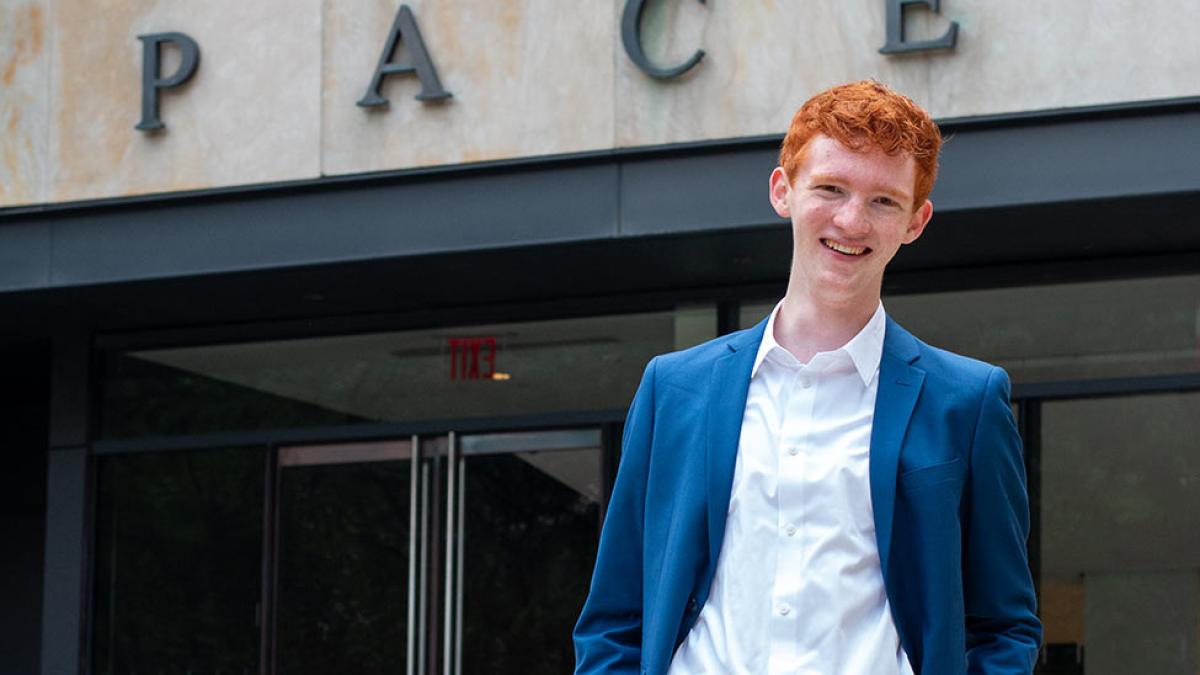
Mason Bray
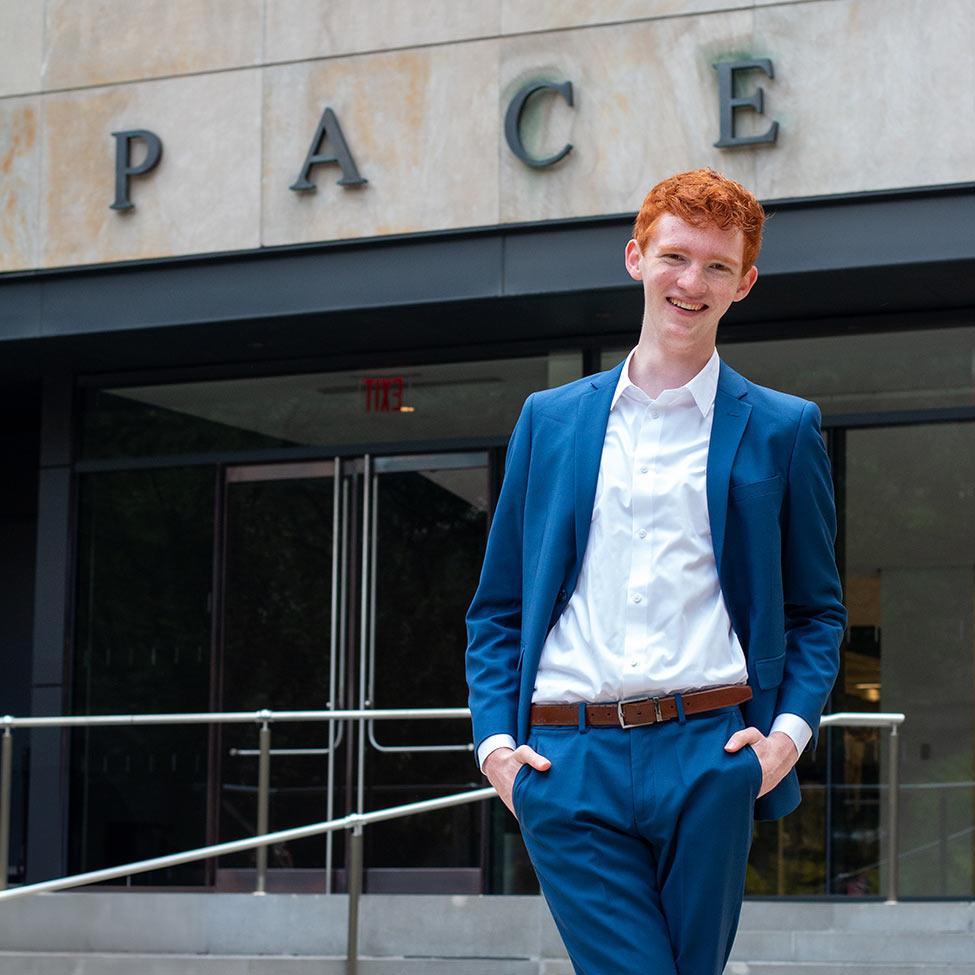
Class of 2028
Currently Studying: BBA in Marketing, Advertising and Integrated Marketing Communications; Arts & Entertainment Management minor
Member of: Student Government Association, The Industry Network
Pronouns: he/him
Why did you choose Pace University and the Lubin School of Business?
Lubin was my first choice because of its proximity to career opportunities in nearly every industry and the professional advantage of being a Setter. I toured campus in September 2023, along with a few other schools in New York City, and nothing compared to the sense of genuine ambition I saw—I submitted my application that weekend.
Tell us about your podcast. What was the experience like, and how did you get opportunities like joining the Broadway Podcast Network?
To really understand my podcast and why I started it, I have to give a little backstory. I’ve been a proud theatre nerd for as long as I can remember. Ever since middle school, I was involved in every show I could—whether I was onstage or working behind the scenes. So when the pandemic hit and everything shut down, I was devastated. That’s when I had an idea: if I couldn’t be part of theatre in person, I’d find another way to stay connected.
I launched my podcast as a way to talk to the people I admired on Broadway and learn more about the industry. Over the next four years, I produced more than 70 interviews with professionals across the theatre world—actors, producers, directors, designers, creatives, stage managers, and casting directors. One of my biggest moments was in 2021 when Tony Award-winning producer Ken Davenport came on the show. After our conversation, he introduced me to the Broadway Podcast Network. I pitched my show, and to my surprise, I got in! At the time, I was their youngest podcaster. It was surreal to have the opportunity to grow my network alongside so many incredible podcasters who welcomed me so graciously. Through this experience, I’ve found some of my closest friends.
Of course, part of it was me totally fangirling over people I’d admired for years (I won’t lie—there was a lot of that). But more than that, these conversations opened my eyes—and my audience’s—to jobs in theatre we don’t always hear about. My chat with DJ Martin, a Broadway marketing manager and founding partner at BOND Theatrical Group, was a game-changer for me. It actually led me to choose my major and land an internship in my first semester! I hope my audience found value in these interviews as well—it was an incredible experience.
As Lubin senator in the Student Government Association (SGA), what initiatives or projects have you been most passionate about, and what impact have they had on the student body?
As senator, I am extremely passionate about strengthening the professional advantage that made Lubin so attractive to me. My main goals include maintaining the professional edge of being a Lubin student, advocating for professional mental health and accessibility, and increasing student opportunities across campus.
I have had the opportunity to connect with Dean Singleton, President Krislov, and several other administrators beyond Lubin, and I’m excited to continue working with them to advance these goals in every initiative. Additionally, I will be sitting on the Socially Responsible Endowment Task Force, collaborating with upper administration to ensure that Pace University has a net positive social impact.
More events and opportunities to get involved are in the works and will come to fruition in the second half of the semester.
How has your experience in SGA helped shape your leadership skills, and what have you learned about advocating for students?
The Student Government Association has become one of my favorite parts of the week, teaching me valuable skills in communication, adaptability, and solution-based thinking. I’ve found mentors in the SGA who I regularly check in with to learn from, and our general meetings provide a space for discussion on campus matters with my peers.
Overall, SGA has shown me that advocacy isn’t just about raising concerns—it’s about following through, working together, and actually making things happen to improve campus life.
As a quick plug, join us for Student Government Association meetings on Tuesdays from 3:25 p.m. to 4:25 p.m. in 1 Pace Plaza, W509! We’d love to have you.
You mentioned an internship with BOND Theatrical Group. Tell us about that experience.
BOND Theatrical is a marketing and booking agency for Broadway national tours, and through my podcast interview with DJ Martin, I was able to join them this past semester as an intern. I got a hands-on look at advertising budgets, venue contracts, press communications, brand management, content capture (including working with Whoopi Goldberg), and many other opportunities I’m incredibly grateful for.
I learned to absorb every piece of insight and information thrown my way. It was a hectic semester, but it was so worth it. As a lifelong theatre nerd, it was amazing to see the industry through a new lens and apply concepts I was learning in the classroom to real-world work.
What has been your favorite opportunity at Pace?
My favorite opportunity at Pace has been the access to so many clubs and events, no matter what your major or interests are. Not only have I been involved with Student Government, but I’ve also met people and had so many great experiences at meetings and events hosted by different organizations on campus—The Industry Network, the Undergraduate Finance Club, The Lubin Society, Fusion Magazine, the Residence Hall Association, P.A.C.E Board—the list goes on.
Do you have any advice for other Lubin students?
Show up! There are so many opportunities to meet new people, hear fresh ideas, and find career opportunities. You can’t stand out if you don’t step up and get involved.
What does #LubinLife mean to you?
To me, #LubinLife means being part of a community fueled by ambition and supported by opportunity, allowing us to become the best versions of ourselves.
Connect with Mason:
35th Annual Susan G. Komen Race for the Cure
Join your fellow Setters in the fight to end breast cancer at the 35th annual Susan G. Komen Race for the Cure and be part of the largest college/university team. The Komen Greater New York City Race for the Cure® is returning to Central Park! Join us on Sunday, September 7, 2025, for a day of celebrating survivors, honoring those we’ve lost, and sharing stories, tears, and laughs. The Greater New York City Race is more than a Race. It’s a community, united in ONE goal: to end breast cancer forever. To achieve our vision of a world without breast cancer, it will take all of us. Join us by registering for the Pace team today!
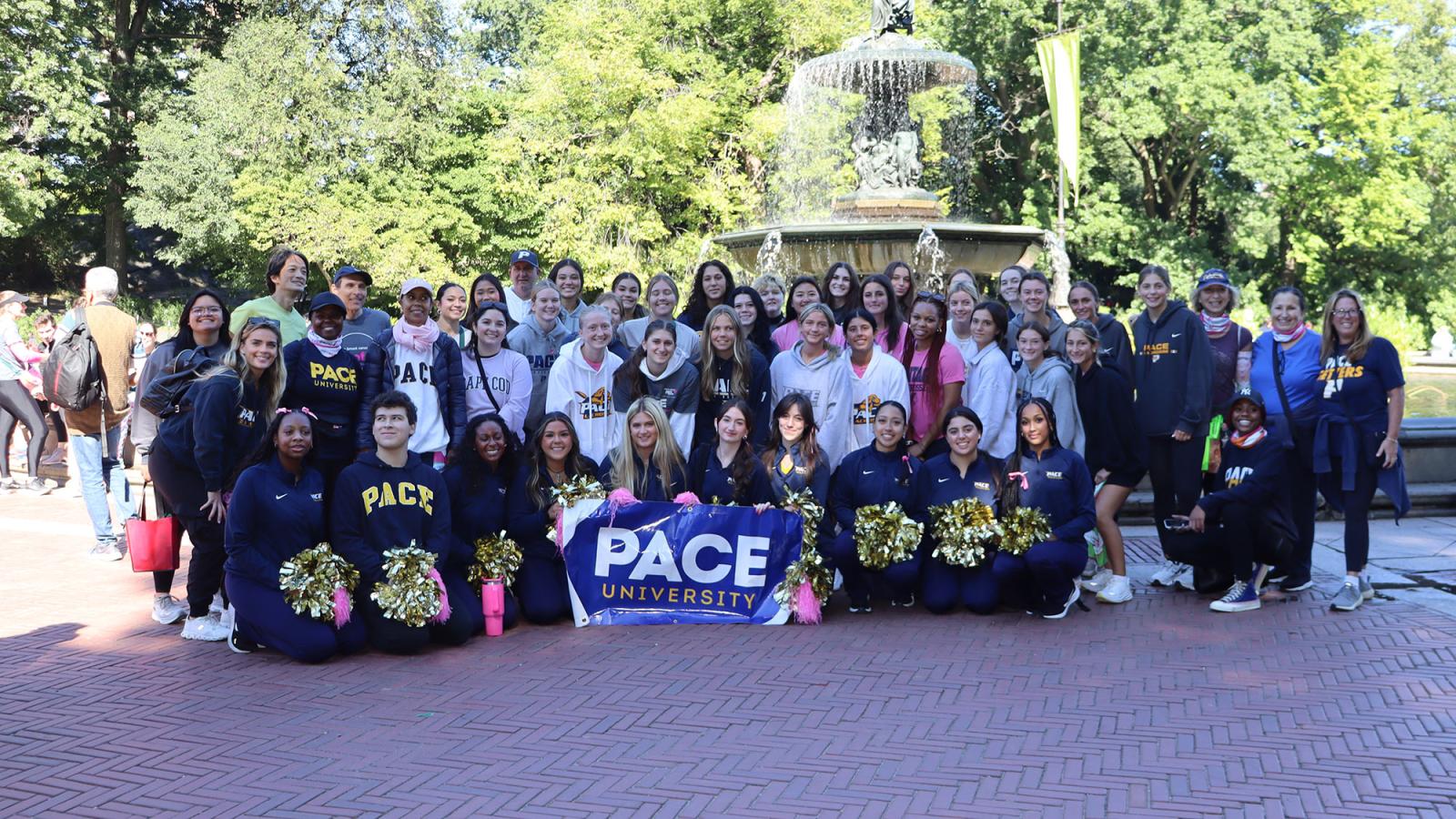
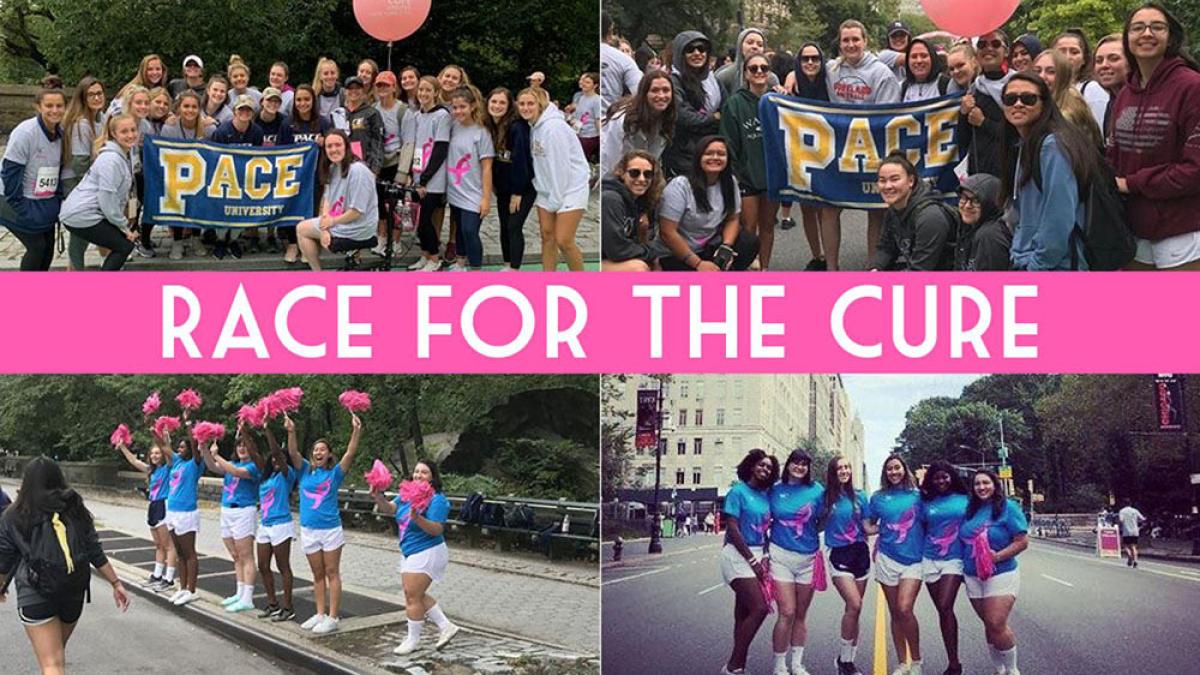

Pace University Continues a 35-Year Tradition in the Fight Against Breast Cancer
Join your fellow Setters along with our team captain, Dr. Ellen Mandel Professor Emeritus, in the fight to end breast cancer at the 35th annual Susan G. Komen Race for the Cure on Sunday, September 7 in Central Park, NY. Pace has maintained a proud tradition of being the largest college/university team. We hope to continue that important distinction. Join us by registering for the Pace team today!
We’re stronger together. United by hope, we can support those who need help today, while fearlessly searching for tomorrow’s cures. Will you join us in this fight?
If you have questions regarding registration, please email Stacie Spitzkoff from Komen Race for the Cure. Additional questions can be directed to Pace’s Public Affairs department.
Please watch the YouTube video below of Dr. Mandel reading a poem she wrote 30 years ago to create awareness about Breast Cancer and to beg for federal funding in Washington, “Walking for the Cure.” This poem was aired during the 30th anniversary of Komen NYC.
Sales, Strategy, and Staying Ahead with Gabriella Ferrara '16
From finance to sales leadership, Gabriella Ferrara's journey is one of ambition and adaptability. In our latest episode of The Lubin Link podcast, this Pace University alumna shares her inspiring story of career transition and success.
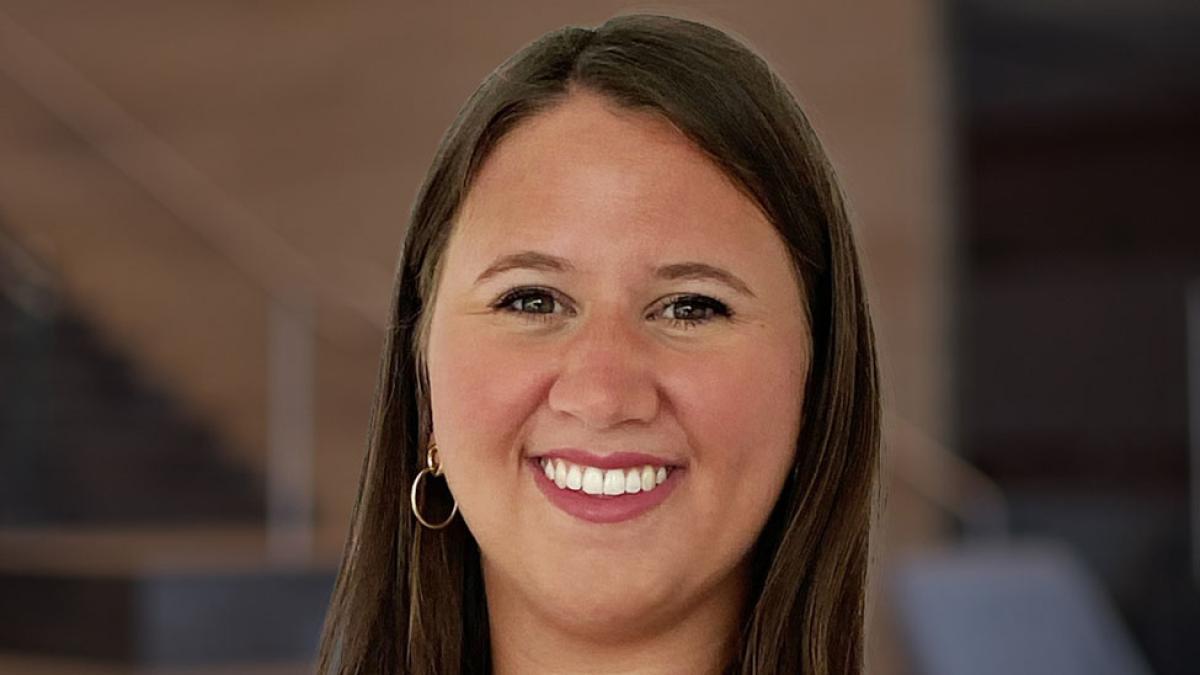
The Lubin Link Podcast
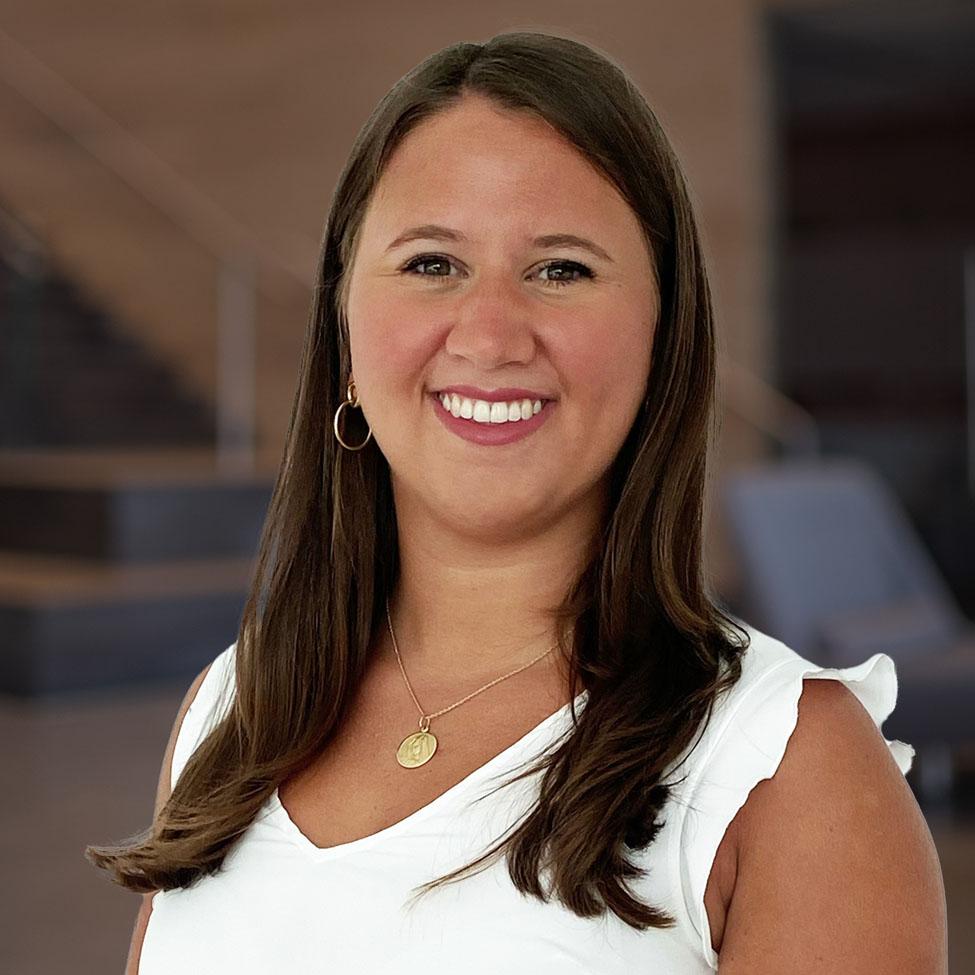
Gabriella Ferrara ’16 joined us for the latest episode of The Lubin Link podcast to share her journey from finance to sales leadership. After launching her career at PwC, she transitioned to her current role as vice president of sales at Scorpion. During her time at Pace, Gabriella was deeply involved on campus, serving as president of Beta Gamma Sigma and the Lubin School of Business Student Government Association. In this episode, we discuss her experiences at Pace, career transitions, and her approach to building meaningful professional connections.
This episode was recorded on February 24, 2025.
Tune into the Lubin Link podcast to hear how guests went from go-getting Lubin students to successful entrepreneurs, social media mavens, directors, CEOs, and beyond. They offer their best tips to students and share how you can make the most out of your #LubinLife.
Faculty Focus: Vice Dean for Academic Affairs and Professor of Law Jill Gross
A life-long New Yorker, Vice Dean and Professor Jill Gross started her career in “BigLaw” before falling in love with teaching and transitioning to a career in academia. Twenty-six years later, Dean Gross has taught generations of students at Haub Law and taken on the important role of overseeing Academic Affairs for the Law School. She also recently authored The Federal Arbitration Act: Successes, Failures, and a Roadmap for Reform. Learn more about Professor Gross in this Q&A.
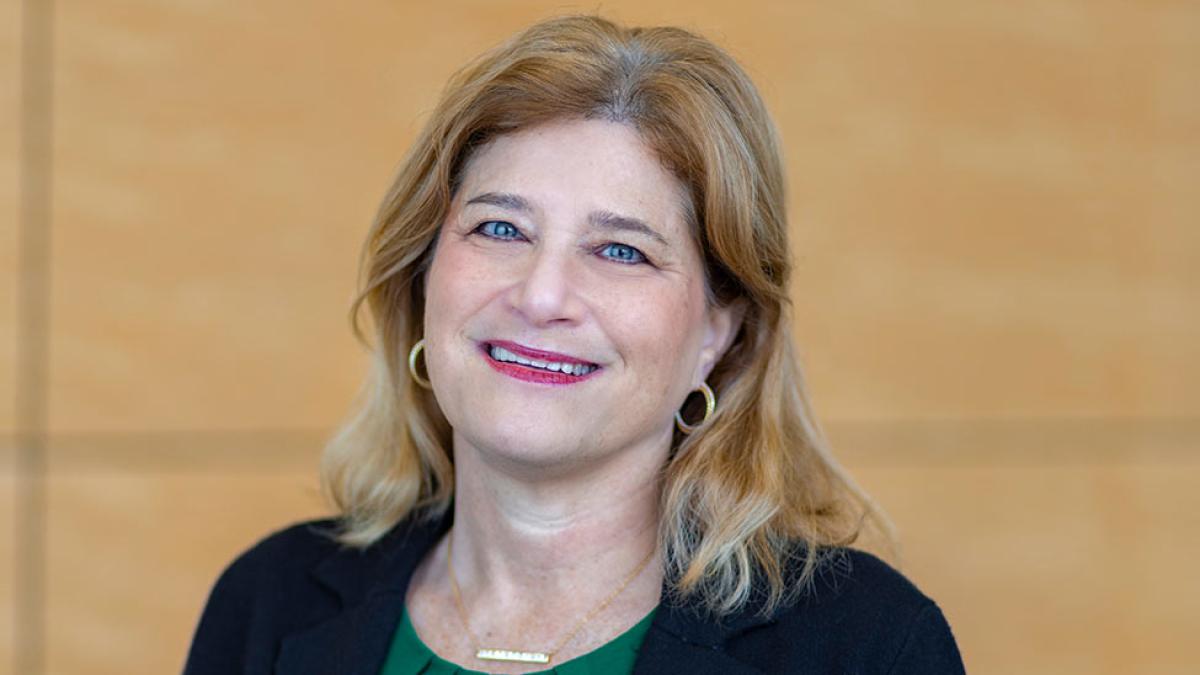
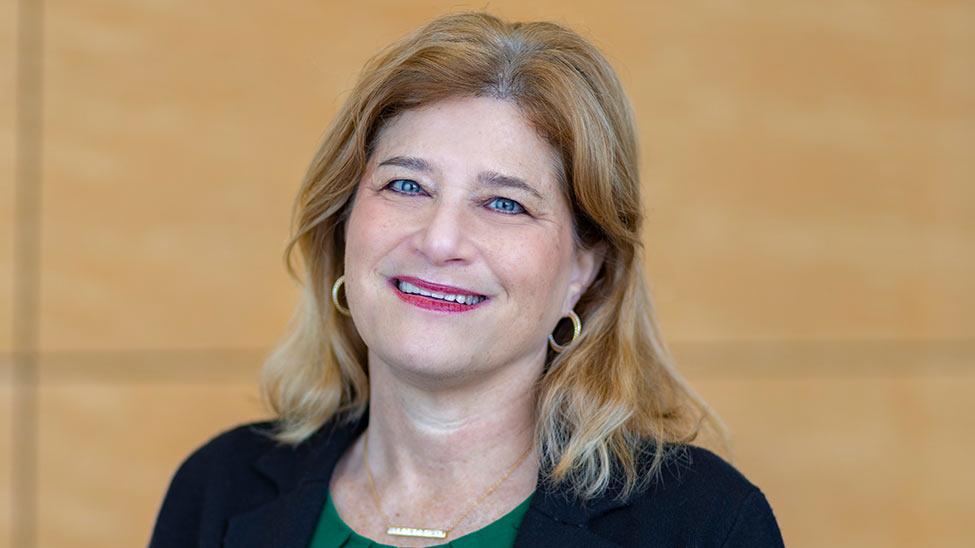
A life-long New Yorker, Vice Dean and Professor Jill Gross started her career in “BigLaw” before falling in love with teaching and transitioning to a career in academia. Twenty-six years later, Dean Gross has taught generations of students at Haub Law and taken on the important role of overseeing Academic Affairs for the Law School. She also recently authored The Federal Arbitration Act: Successes, Failures, and a Roadmap for Reform. Learn more about Professor Gross in this Q&A.
I understand that you were not always planning on a career as a lawyer or law professor, can you tell us a bit about how it evolved?
I am a life-long New Yorker who went straight from college to law school. In college at Cornell University’s School of Arts & Sciences, I designed my own major in Western European Studies. I loved the cross-disciplinary learning about the politics of Western European countries, European culture and art history, and French and German language and literature. I came very close to pursuing a Master’s Degree in French Studies, but ultimately I chose a more pragmatic career path and went to law school.
From Law School you went into private practice, how did you end up in academia?
When I first arrived at law school, I did not really know what kind of law I wanted to practice. During law school, based largely on poor assumptions I made at the time, I convinced myself I did not want to practice in the securities law field, and I did not want to teach law. However, in the category of “never say never,” I ended up practicing securities law both at my first job at a “BigLaw” firm and at a boutique white collar criminal defense firm in Manhattan. And while at the white-collar firm, I was offered an opportunity to teach Legal Writing at Cardozo Law School, and I fell in love with teaching. My favorite moments of every single week were preparing to teach students and then teaching them and watching them learn. I then set my mind to pivoting to a full-time career in law academia. That’s when I sought out a position at Pace Law School, first as an adjunct professor co-directing what is now known as the Investor Rights Clinic. I then was fortunate enough to be offered a full-time teaching position. And the rest is history.
Your research interests and areas of expertise include Dispute Resolution, Professional Responsibility and Legal Ethics, Securities Law, and more – what is it about those areas that hold your interest?
These seemingly disconnected areas of law actually tie together what I did in private practice. I represented defendants in securities enforcement proceedings based on alleged misconduct in connection with investments, and also represented respondents in related securities arbitrations. Every day, my practice required an intimate understanding of the relevant securities laws, the intricacies of the dispute resolution processes, and the ethical boundaries. When I teach these courses, I can draw extensively on lessons from practice.
You recently authored a book, The Federal Arbitration Act: Successes, Failures, and a Roadmap for Reform – how was that process and what inspired you to write on this subject?
I have been interested in the Federal Arbitration Act since I first was exposed to arbitration, and learned firsthand how lawyers use arbitration clauses in contracts without fully understanding the statutory limits of the Act. While Congress’ original purpose in passing the Act is laudable, the statute is in dire need of reform to address the many problems that have arisen in the century since its passage. The book gathers together dozens of scholars each of whom makes a discrete recommendation to amend one particular aspect of the statute, thus providing Congress with a roadmap for reform. Celebrating the one-hundredth anniversary of the passage of the Act seemed like an ideal opportunity to gather diverse perspectives on how to approach the next century.
Where do you see the future of ADR headed?
ADR is just getting more and more popular, as the delays and costs of litigating a case from beginning to end grow. However, scholars need to keep process designers accountable by studying whether these emerging, innovative processes ensure that disputants have access to both procedural and substantive justice. So future ADR scholarship should empirically explore the fairness of these processes and test the hypothesis that they are indeed faster and cheaper for disputants.
You are Vice Dean for Academic Affairs at Haub Law – what does that role entail?
In my role as Vice Dean, I am responsible for the integrity of the academic program for all students. I live by the mantra that I make all decisions so as to put all students in the best possible position to succeed in law school, on the bar exam, and in practice. Among other responsibilities, I plan course offerings, develop new courses, set the schedule, assign the teachers, maintain and monitor compliance with ABA and New York State standards for legal education, trouble-shoot problems that arise for both students and faculty related to their classes, provide professional development support for all faculty, assist Dean Anderson in developing special programs, and oversee our Academic Success team. The role is all-encompassing and touches all areas of law school operations. While it can be an overwhelming role at times, I love impacting students’ law school experience and putting them in a position to succeed every day.
What course is your favorite to teach and why?
I love teaching both Professional Responsibility and Survey of Dispute Resolution Processes. In both classes, I can draw heavily from my practice experience as a private lawyer and as an arbitrator to give the students perspective and to teach both doctrine and practice.
In 2024, you traveled to Vienna as part of the Willem C. Vis International Commercial Arbitration Moot – what was that experience like?
My experiences at the 31st Vis Moot deepened my perspective on international commercial arbitration. I observed Haub Law’s outstanding student team compete in a few of its rounds, and I served as an arbitrator for other rounds. I had the opportunity to see firsthand the wonderful mentorship, coaching and nonstop cheerleading of our team and I also participated in the meeting of the Verein to debrief this year’s competition and discuss planning for next year. I also attended the festive Opening Ceremonies and several lectures. Not only did I learn about international commercial arbitration while in Vienna, I also availed myself of the opportunity to learn about foreign perspectives on the broader field of international conflict resolution. I also had the opportunity to sight see and visit a museum as well. When I returned to campus, I shared my experiences of one exhibit I saw relevant to peace-making with my Survey of Dispute Resolution Processes class.
I have learned from my students that the world is full of wonderful, curious and ambitious people who have many different dreams and life goals, and many different avenues to achieve those goals. Every path is individual, yet the objective is often the same: to lead a fulfilling life and career.
As a professor you are tasked with teaching students, but what have you also learned from them in return?
I have learned from my students that the world is full of wonderful, curious and ambitious people who have many different dreams and life goals, and many different avenues to achieve those goals. Every path is individual, yet the objective is often the same: to lead a fulfilling life and career.
Did you have a mentor when you started in your career in academia and if so, how did that positively impact your journey?
Professor Barbara Black (now retired) became my mentor when I joined Haub Law back in the Fall of 1999. She helped me become a better teacher, and she taught me how to write law review articles that were impactful and made a difference in the field of securities arbitration. She even agreed to co-author with me, which helped give my academic career a huge boost. I would not be where I am today if it were not for Professor Black.
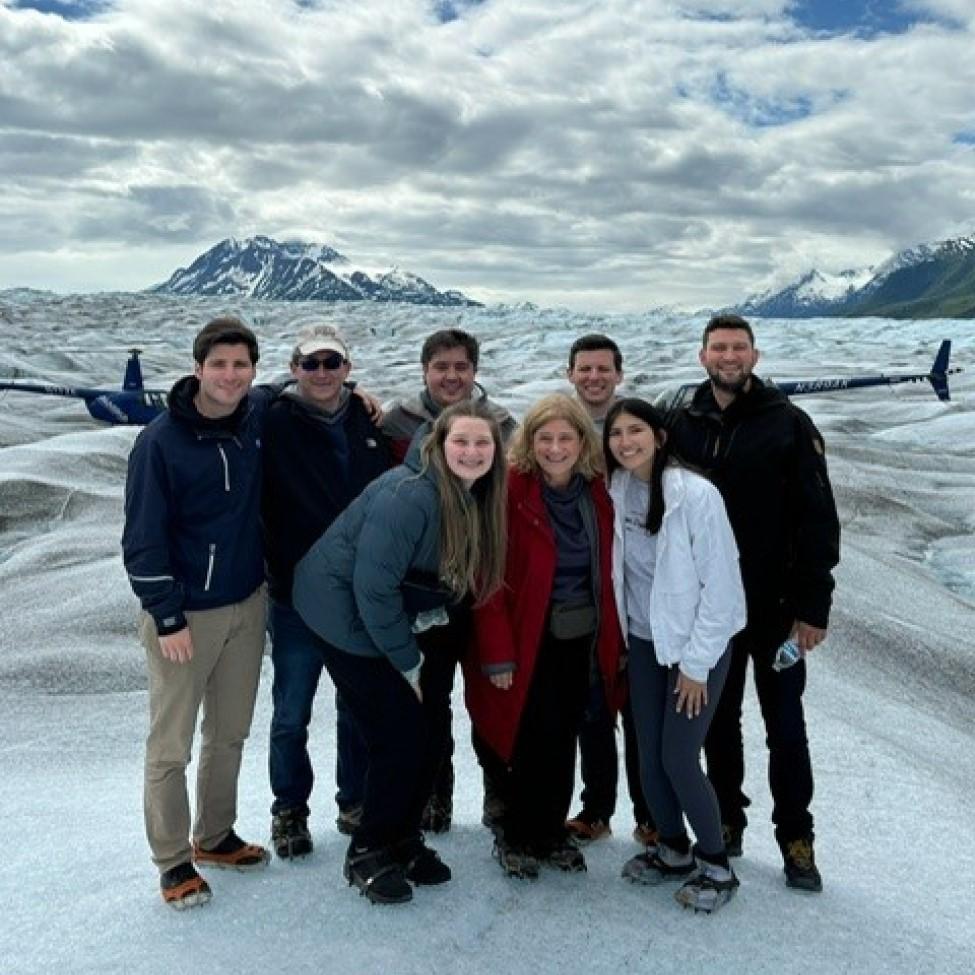
Aside from law, how do you spend your spare time?
In my spare time, I love to do word and math puzzles (Wordle, Spelling Bee, KenKen, Connections, Quartiles), watch hockey games, walk in nature, and travel to beautiful places. I recently traveled with my entire family to Alaska, and had a fabulous trip exploring and viewing truly breathtaking terrain: snow-capped mountains, glaciers, seas, valleys, glacial lakes, waterfalls, and forest.